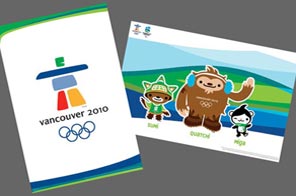Drug tests to double at 2010 Winter Olympics
RICHMOND: Testing for banned substances at the 2010 Winter Olympic and Paralympic Winter Games will double to nearly 2,500 compared to the 2006 games in Turin Italy, according to an anti-doping official.
A team of 30 technicians and seven scientists from the World Anti-Doping Agency will work round the clock at a 15.8-million-dollar laboratory unveiled Wednesday at the Richmond Olympic Oval, site of the long track speed skating.
But despite the "best possible facility," do not expect to see the first drug-free Olympic Games in February, said Christiane Ayotte, an anti-doping expert at the Quebec-based National Institute for Scientific Research.
According to Ayott, testing methods for banned substances such as testosterone, EPO (Erythropoietin) and growth hormones, in recent years have evolved.
"You have the same basic arsenal... (but) the instrumentation is... getting better, being refined. With some instruments here we can achieve the picogram level (one-trillionth of a gram) which is even better than what we were doing even two years ago."
Ayotte said her team would report negative blood and urine samples within 24 hours and more difficult test results within 72 hours.
The Olympic flame is to be lit in Greece on Thursday. Following an eight-day tour of the country, it will arrive in Victoria, British Columbia, on October 30, marking the start of a 106-day, 45,000 kilometer journey across Canada.






